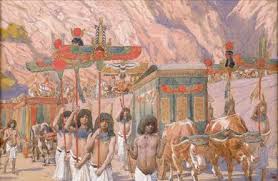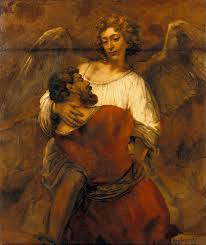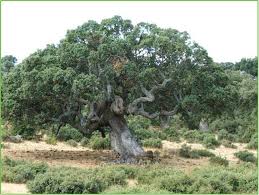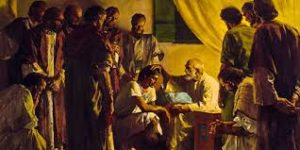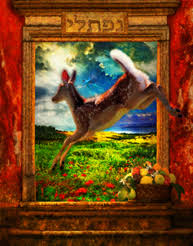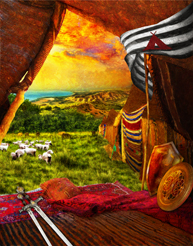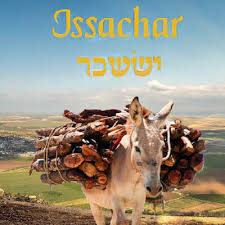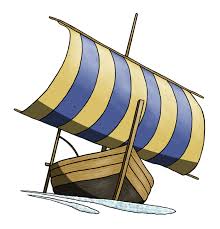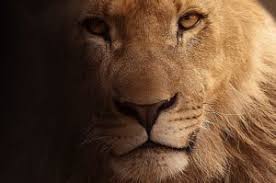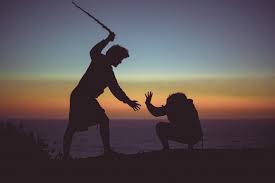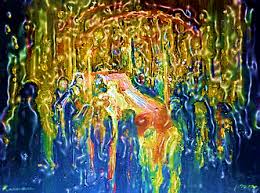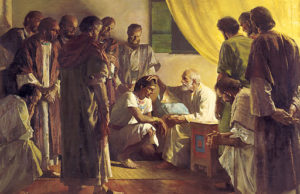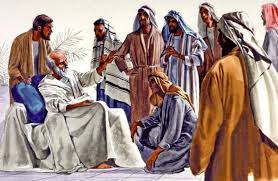Lt – Joseph Reassures His Brothers 50: 15-21
Joseph Reassures His Brothers
50: 15-21
Joseph reassures his brothers DIG: What do you make of the brother’s fear as described here? Is it justified? Why or why not? How does Joseph’s story reveal the truth of Yosef’s response? What four ways did Joseph foreshadow the life of Christ?
REFLECT: When you read these verses, what struggles and triumphs come to mind in your own life? When was the last time you were tempted to replace God in judging others? In judging yourself?
On their return to Egypt, Joseph’s brothers began to worry that he would hold a grudge against them for all the wrongs they had done to him (50:15). Clearly the brothers had not dealt thoroughly with their own guilt, and they had not fully understood Yosef’s forgiveness of them.817 They had actually never made a full confession of guilt to him, although they had shown by their actions that they were sorry. A combination of pride and fear seemed to stop them from saying anything further as long as Jacob was alive. They assumed that, for Jacob’s sake, Joseph would not do anything to them. As Ya’akov could no longer a restrain Yosef, their fears grew and they knew that something had to be said.818
Afraid to face him, they invented an imaginary message from Jacob to protect themselves. They sent it to Joseph, probably by Benjamin, saying: Your father left these instructions before he died, “This is what you are to say to Joseph: I ask you to forgive your brothers the sins and the wrongs they committed in treating you so badly. Now please forgive the sins of the servants of the God of your father.”
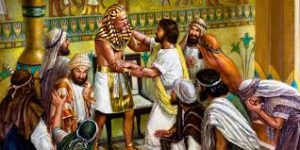
When their message came to him, Yosef wept (50:16-17). Why? When he had previously revealed himself to his brothers, he had said: I am your brother Joseph, the one you sold into Egypt! And now, do not be stressed and do not be angry with yourselves for selling me here, because it was to save lives that God sent me ahead of you (45:4-5). He had tried to calm their fears and emphasized God’s sovereignty in what he had experienced. And he kissed all his brothers and wept over them. Afterward his brothers talked with him (45:15). But this recent message seemed to say that they had either not believed him or learned nothing of his true character in the past seventeen years. He had forgiven them long ago. Hadn’t they realized that? Therefore, Yosef wept.
Hearing of Joseph’s reaction to their words, that is, his tears, the brothers felt brave enough to face him in person. They came to him in humility, bowing before him and announcing their servitude.819
79. All of the children of Isra’el bow down before Joseph and Christ. His brothers then came and threw themselves down before him saying: We are your slaves (50:18). So in the coming Day of the Lord they will bow down before Him and say: Surely this is our God; we trusted Him and He saved us. This is the LORD, we trusted Him; let us rejoice and be glad in His salvation (see the commentary on Isaiah, to see link click Fc – Surely This is Our God; We Trusted in Him).
But Joseph comforted and reassured them and said: Don’t be afraid. Am I in the place of God? The Hebrew here can also be translated as a statement rather than a question: I am subject to God! He realized that he was not sovereign. Indeed, everything that had happened occurred because of the providence of ADONAI. How could he, a mere human, change it? Not only that, he said: You intended to harm me, but God intended it for good to accomplish what is now being done, the saving of many lives from all over the world (50:19-20). In other words, “You blew it, but God knew it!” Yosef believed that God even uses the sinfulness of humans to bring about His good purposes in the world. This truth is woven throughout Scripture (Proverbs 16:1, 20:24; Psalm 37:23). As Proverbs 16:9 says: In his heart a man plans his course, but the LORD determines his steps. In the B’rit Chadashah, Paul echos Joseph’s words when he says: We know that God causes everything to work together for the good of those who love God and are called in accordance with His purpose (Romans 8:28). However, there is no stronger statement in the Scriptures regarding the true meaning of the sovereignty of God than what Joseph said to his brothers.820
What gave Yosef the grace to make this remarkable reply? There can be only one answer: Joseph knew God. In particular, he knew two truths about God. First, he knew that ADONAI is sovereign – that nothing ever comes into the life of any one of His children that He has not approved of first. In other words, there are no accidents.821 Secondly, he knew that the LORD is faithful – therefore, when the good and the bad came Joseph’s way, he knew that God would be with him. In other words, He will never leave or abandon His children (Hebrews 13:5b). These two truths are just as real to us today as they were for Yosef. Jesus Christ is the same yesterday and today and forever (Hebrews 13:8).
80. Both Yosef and Yeshua give proof that they are fully reconciled to their family. So then, don’t be afraid. I will provide for you and your children. And he kissed all his brothers and wept over them (45:15 and 50:21a). The fact that he kissed and wept over his brothers showed that they were forgiven and speaks of his love. It was with a kiss that his father greeted the prodigal son as he returned from a season of sin (Luke 15:17-21). Notice, it was Joseph that kissed them, and not the other way around. God always takes the initiative.How blessed, also, are the words that follow: And he reassured them and spoke kindly to them (50:21b). Their fears were all gone now. Reconciled to Yosef, they could now enjoy his fellowship and talk with him. So it is with the saved sinner and the Lord.
There is no doctrine so clearly taught in the Bible as the providence of God. ADONAI is grandly portrayed as the blessed and only Ruler, the King of kings and Lord of lords, who also is immortal and who lives in unapproachable light (First Timothy 6:15-16). In his book of systematic theology, Berkhof summarizes the doctrine of sovereignty as follows, “The sovereignty of God is strongly emphasized in Scripture. He is represented as Creator and His will as the cause of all things . . . He is clothed with absolute authority over the hosts of heaven and the inhabitants of the earth. He upholds all things with His almighty power, and determines the ends that they are destined to serve. He rules as King in the most absolute sense of the word, and all things are dependent upon Him and subservient to Him.” The Bible teaches that at this very moment the LORD sits enthroned over the universe. He is preserving and maintaining His creation by His sovereign hand. All in the universe – the whens, the wheres, the hows and the whys – is determined and directed by the matchless, supreme God.822 But does that mean we are mere robots with no choices of our own?
No, implicit here is the intimate relationship between divine sovereignty and human responsibility. We can never fully understand how both are held together, yet both are clearly affirmed in Scripture. Any attempt to emphasize one at the expense of the other will result in misunderstanding how we relate to God. So, for example, to emphasize divine predestination to such a degree that you and I are not really responsible for our actions is to put too much emphasis on sovereignty.823 Likewise, to assert our human freedom in a way that implies that any of our actions are outside the LORD’s control is to misunderstand our responsibility before God. The story of Joseph beautifully illustrates that both are true and both must be held in balance. Yosef’s life experiences taught him well. His brother’s evil betrayal, Potiphar’s wife’s lies, the cup-bearer’s negligence, all had taught Joseph that ADONAI could overrule the evil of humans to accomplish good for those who serve Him.824



